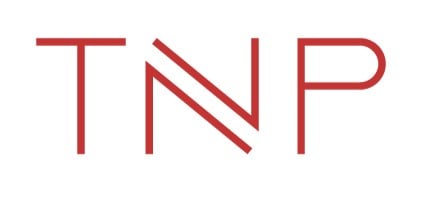

Group company secretary, head of legal and chief compliance officer | CFAO Nigeria



Ayokunle Olushola Ayoko
Group company secretary, head of legal and chief compliance officer | CFAO Nigeria
Team size: Six
Ayokunle Olushola Ayoko possesses two decades of multi-industry experience, encompassing company secretarial duties, legal advisory services, regulatory compliance, human resources management, and corporate governance and strategy. Notably, he served as company secretary for FBN Insurance, FBN General Insurance (now Sanlam Insurance), and FBN Insurance Brokers.
Furthermore, Ayokunle served as the company secretary and legal adviser for Berger Paints, and later as company secretary and general counsel for International Breweries. Presently, Ayokunle is the group company secretary, head of legal and chief compliance officer for CFAO Nigeria. He is a co-founder and director of Kaizen Academy (Nigeria), a leading consultancy committed to providing top-notch strategy, secretarial, governance advisory, and training services.
He possesses an LLB from the University of Ibadan, an Executive Diploma in International Law & Diplomacy from Kingsland Foundation, and a Certificate in Global Governance & Diplomacy from the European School for Leadership Development. Additionally, he is a chartered secretary, certified compliance analyst, and certified management consultant. Ayokunle is currently completing his LLM and MBA at the University of South Wales and Liverpool John Moore’s University, respectively.
What are the most significant cases and transactions that your legal team has recently been involved in?
The team successfully negotiated and finalised a franchising and distribution agreement for a major vehicle brand with a subsidiary, establishing themselves as the second authorised distributor in Nigeria. The team equally provided support in legal functions for the start-up, including contracts for the business, securing government approvals, and engaging construction companies.
In another notable accomplishment, the team secured an out-of-court settlement for a Court of Appeal case, reducing claims against a Group subsidiary from ₦500m to 100m. This saved the company ₦400m in legal exposure. Additionally, the team effectively managed the disposal of a company asset valued at over ₦1bn, handling the drafting and negotiation of transfer instruments with the preferred bidder.
How does the in-house legal function contribute to the overall dispute resolution strategy of the organisation?
The Group’s dispute resolution is primarily shaped and executed by our in-house counsel, with some support from external counsel. We minimise the possibility of conflicts through routine risk assessments, providing counsel, and carefully drafted contracts. Furthermore, we have implemented an automated contract management system to alert team members about contractual obligations. This ensures that nothing slip through the cracks, ensuring proactive management. Furthermore, the unit oversees litigation proceedings, while also advocating for alternative dispute resolution procedures. To promote a culture that is cognizant of the law, the team also engages stakeholders, oversees compliance, and conducts training. The conflict resolution plan is further enhanced through ongoing development and cooperation with other departments.
As a general counsel, how do you anticipate and prepare for potential legal and regulatory challenges that may arise, particularly in light of emerging technologies and evolving business landscapes?
As the group company secretary, I proactively anticipate and address legal and regulatory challenges, focusing on emerging technology and changing business landscapes. We manage risks through cross-functional collaboration, closely monitoring regulatory changes and industry trends. We maintain a comprehensive understanding of legal ramifications associated with emerging technology through ongoing research. Regulatory intelligence tools aid in swiftly identifying legislative changes, especially in areas like cybersecurity and data protection, that may impact the company.
To address challenges effectively, robust compliance programs with policies and regular training are essential. Our legal strategy includes proactive engagement with regulatory bodies and strong contractual clauses. Ensuring compliance with privacy regulations is crucial and a crisis management strategy are key to efficiently handle legal disputes. Legal evaluations incorporate ethics, particularly in areas like automation and AI. Engaging with the industry and seeking external counsel are essential for gaining knowledge and support. Taking a proactive approach helps us manage challenges while upholding CFAO’s integrity and compliance.
How do you see the general counsel role evolving in Nigeria over the next five-ten years?
The evolution of counsel in Nigeria depends on several factors, given global trends, it is safe to say that the role of the general counsel (GC) is likely to evolve in several ways. As the regulatory environment becomes more complex, the role will become more focused on ensuring compliance. This could involve proactive risk management and the development of a robust compliance framework.
As global ESG awareness increases, I expect Nigerian GCs will play a key role in guiding their companies on sustainable practices, managing legal aspects of CSR and sustainability reporting. Alternative dispute resolution will gain importance as disillusionment of the Nigerian court process grows. GCs must assist their organisation in avoiding disputes and adopting easier resolution methods. Finally, as Nigerian companies expand globally, GCs need to harmonise cross-border transactions, international regulations, and legal practices for seamless global operations.
Group company secretary, head of legal and chief compliance officer | CFAO Nigeria